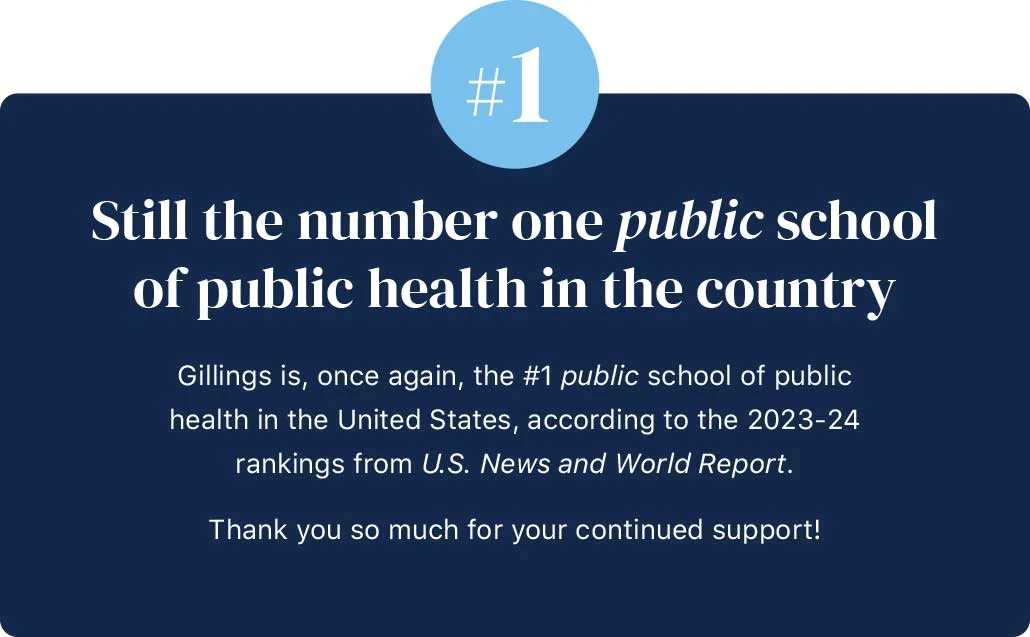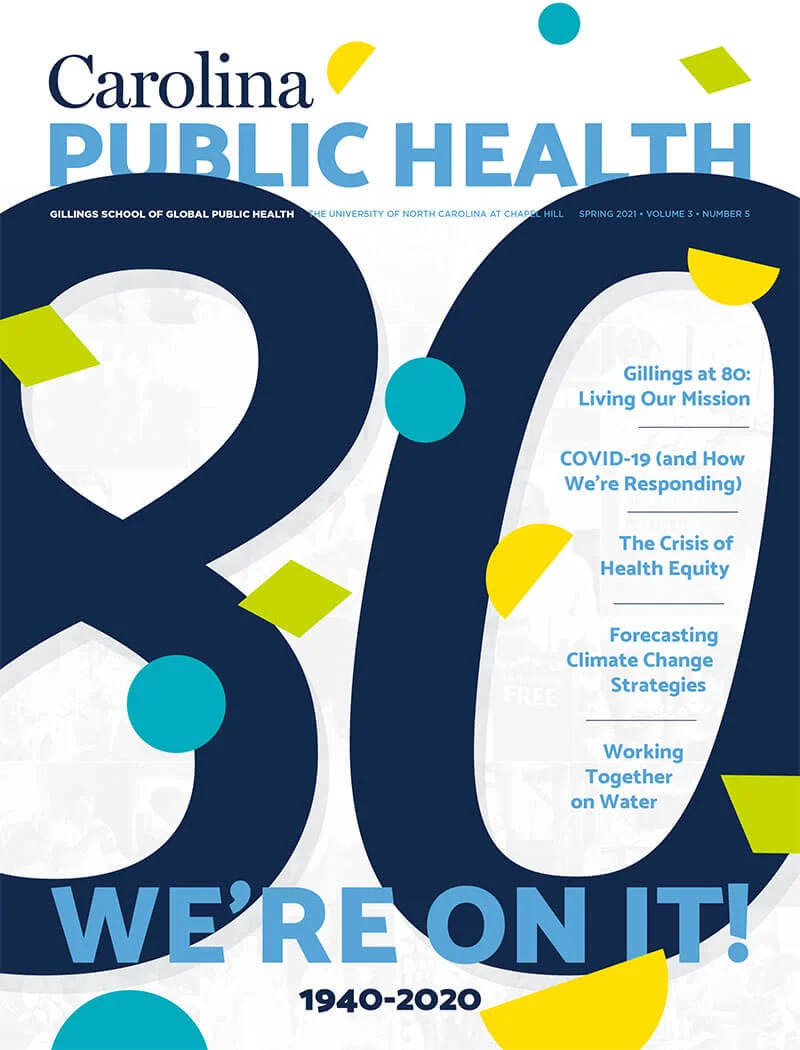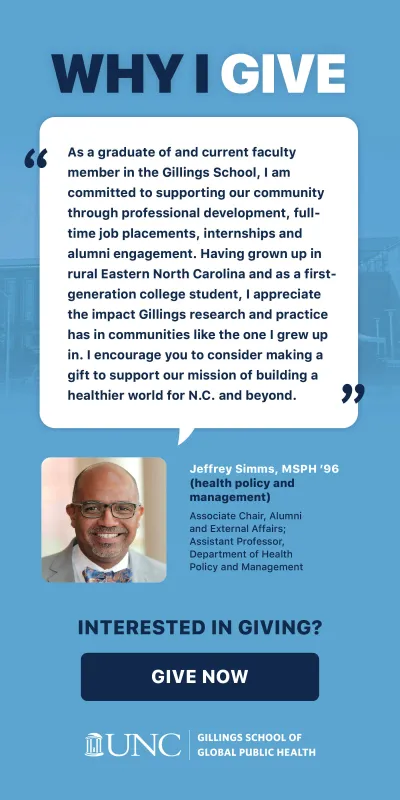The Gillings School’s vice dean believes that public health is more than just a profession – it’s a lifelong commitment.
Taya Jackson Scott, EdD, has taken many paths in a career that led her to the Gillings School, and each part of the journey has been driven by a deeply rooted commitment to family and community.
“It’s critical for me,” she said. “I don’t do things for other people that I wouldn’t also do for my family.”
Experiences with her neighborhood, her church, her mother and her grandfather – who lived to age 101 – have instilled her with a curiosity to understand the intricacies of community health, especially in Black communities. What makes them resilient? What inequities do they face, and how can they be resolved?
“Public health is actually giving people tools to be able to care for themselves and their families.”
Outreach has been at the heart of Jackson Scott’s roles. On the advice of her mother, she has endeavored not to do things by halves. She has worked in finance, organizational strategy, career development, marketing and administration in order to understand how all of these aspects work together to affect cultural change in higher education and health care.
Many of her outreach efforts have come in partnership with her family. To contribute to workforce development, she and her husband co-founded the GIA Community Development Corporation – a nonprofit organization that connects youth to skill and career-building opportunities. Jackson Scott also works with her sister, Karen Scott, MD, in the mentorship of women in marginalized communities, connecting them with educational opportunities needed to build skills, cultivate self-awareness and shape future careers.
Her belief that education is the great equalizer has now brought her to the Gillings School, where she uses business modeling and operational excellence strategies as part of a collective effort to advance public health initiatives. Jackson Scott embraces public health 3.0 – a modern concept of public health infrastructure that takes a holistic view on the aspects of a community that contribute to overall health and well-being.
“You can tell a person how to eat right or what they need to do for their health. But they may be hungry, or they may not have a job,” she explained. “Solving that bigger-picture challenge is one of the great things about some of the public health programs that I’ve seen.”
Since coming to Gillings, she has drawn inspiration every day from the work of students, faculty and staff and how it touches the lives of those affected by health inequities.
“Public health is really that full circle,” she says. “It’s not just what we say: ‘from global to local.’ It’s actually giving people tools to be able to care for themselves and their families.”




